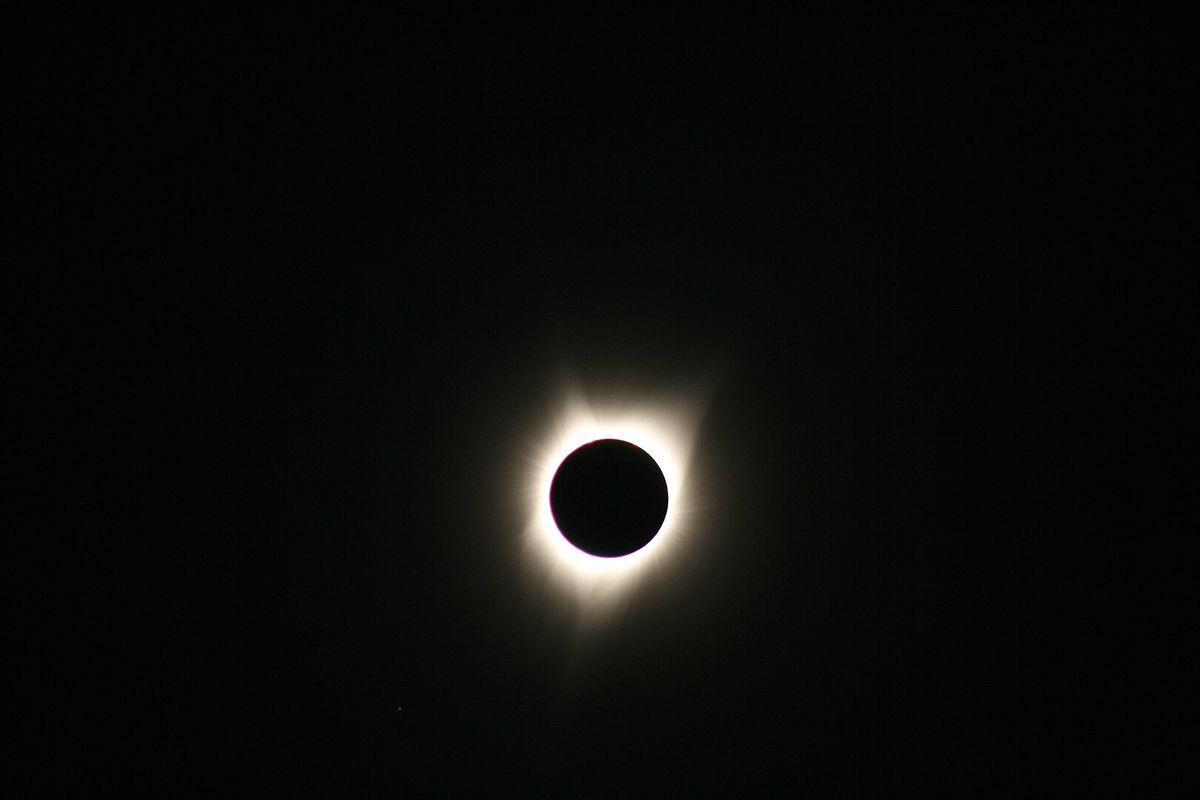On April 8, 2024, North America will face a rare total solar eclipse, in which the moon will cross over the sun, blocking it completely for a brief period. People living in the path of the moon's shadow when it hits Earth will experience total darkness for a range of time, with the longest duration being around four minutes if they are near Torreón, Mexico, according to NASA.
For humans who want to observe a solar eclipse, NASA cautions us to use special viewing glasses when looking up at the sun. Looking directly at the sun on a regular day would harm retinal cells in the eye. Even if only a part of the sun is blocked by the moon, the eyes could still be damaged. However, when the sun is completely covered in a total eclipse, its radiation is too weak to harm the human eye.
But what impact could any of this have on our furry friends?
Many online said their animals would be unaware about not looking up at the sun, and need to be kept indoors as a result. The sudden change in light would also apparently harm them. Other posts said there was "no need to panic":
A TikTok user claimed that pets generally don't look at the sun on normal days and wouldn't during the eclipse. However, the post claimed their eyes could be harmed over extensive periods of time, so people should consider keeping their pets indoors and not draw their attention to the sky.
In reality, pet owners don't actually have to do a lot to protect their animals, according to experts, who suggest keeping everything as routine as possible.
According to the American Kennel Club (AKC):
Scientists have warned people not to look directly at the eclipse without special glasses, but you shouldn't worry about going out to find canine-sized eyewear for your dog.
That's because dogs don't naturally look up or stare at the sun, according to Dr. Jerry Klein, the chief veterinary officer for the AKC. "They know enough not to," he pointed out, and then adding jokingly, "That's why they're smarter than people."
Most dogs only look up toward the sky if something flies overhead or catches their attention, Dr. Klein said. So if the eclipse in your area is large enough to actually darken the sky, your dog shouldn't be looking up to figure out what's going on.
The AKC pointed out that wildlife and livestock were more attuned to show unusual behavior during an eclipse, but pets like dogs or cats generally did not exhibit stress. In 2017, researchers at the Riverbanks Zoo and Garden in Columbia, South Carolina, were taken by surprise during a solar eclipse, when they found giraffes in zoos gather and begin galloping, gorillas preparing for bed early, and Galápagos tortoises beginning to mate.
Animal keepers in a Nashville zoo also documented galloping giraffes during brief periods of darkness. Researchers believed the animals were reacting to the light dimming, the way they would for nighttime, as well as reacting to humans exhibiting excitement or commotion during the eclipse. While reports of such behavior during solar eclipses date back to hundreds of years, the causes and effects of such behavior are not fully known, according to NASA.
Ohio State University's Veterinary Medical Center published some tips for pet owners during an eclipse:
Companion animals are more likely to be concerned about the humans acting differently than they are the eclipse itself.
- Dogs, cats, birds, etc. do not normally stare at the sun; they heed their natural reflexes not to look (unlike us curious humans).
- Avoid encouraging your pets to look at the eclipse. They will not understand it, and doing so without eye protection can harm their retinas, too. It may also be perceived as a confrontational interaction.
- If extra people will be going in and out of your home for an eclipse party, for example, make sure to have a second barrier to avoid pets escaping (baby gate, flexible pen, having dog on leash etc.).
- If you are having visitors and that is a situation that has stressed your pet previously, talk to your veterinarian now about management strategies. They may include anti-anxiety supplements, pheromones or medications to help your pet have the best eclipse experience possible.
- If the increase in darkness prompts your pet to sleep or nap, let them. (One of the perks of being a pet is napping whenever they want.)
Erica Cartmill, a professor of animal behavior at Indiana University, told People magazine, "There are not that many reports and not that many scientific studies of animal behavior during eclipses."
She said a total eclipse is like dropping a bit of night into daytime. "The most likely response is animals starting their evening routines and showing evening behaviors. If you have a dog or a cat, they might go to bed, get quieter, or start yawning and stretching," she added.
"If you're sitting with your dog and staring up at the sky, your dog might stare up at the sky too, but it could be because they're following your gaze, not because they're interested in the eclipse. I think our companion animals are more interested in us, especially dogs, than anything else," she continued.
Ultimately, pet owners should act as normal as possible during the eclipse, and keep their animals in a calm environment, while not encouraging them to do anything out of the ordinary, like looking up at the sun.
